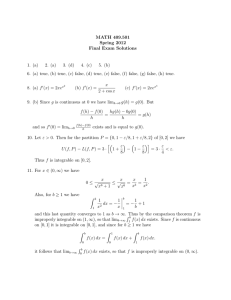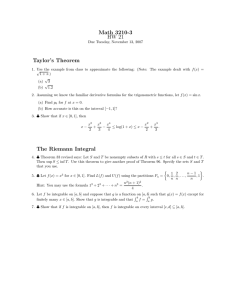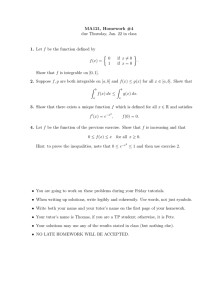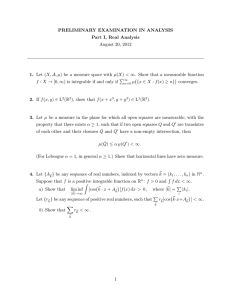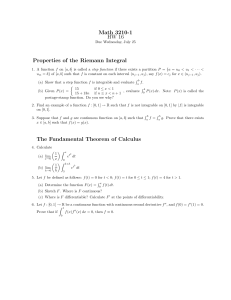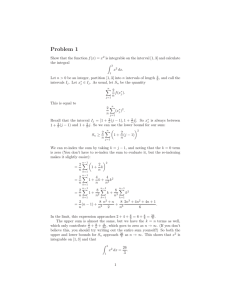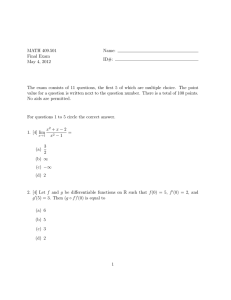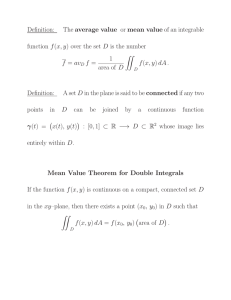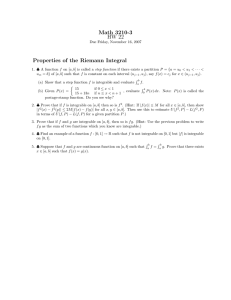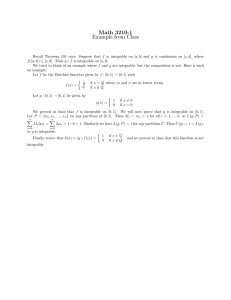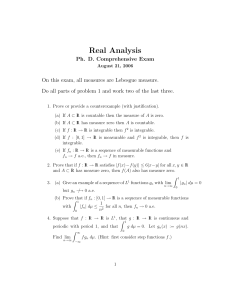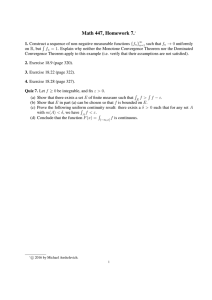MATH 409.501 Spring 2009 Final Exam Solutions 2. (b)
advertisement
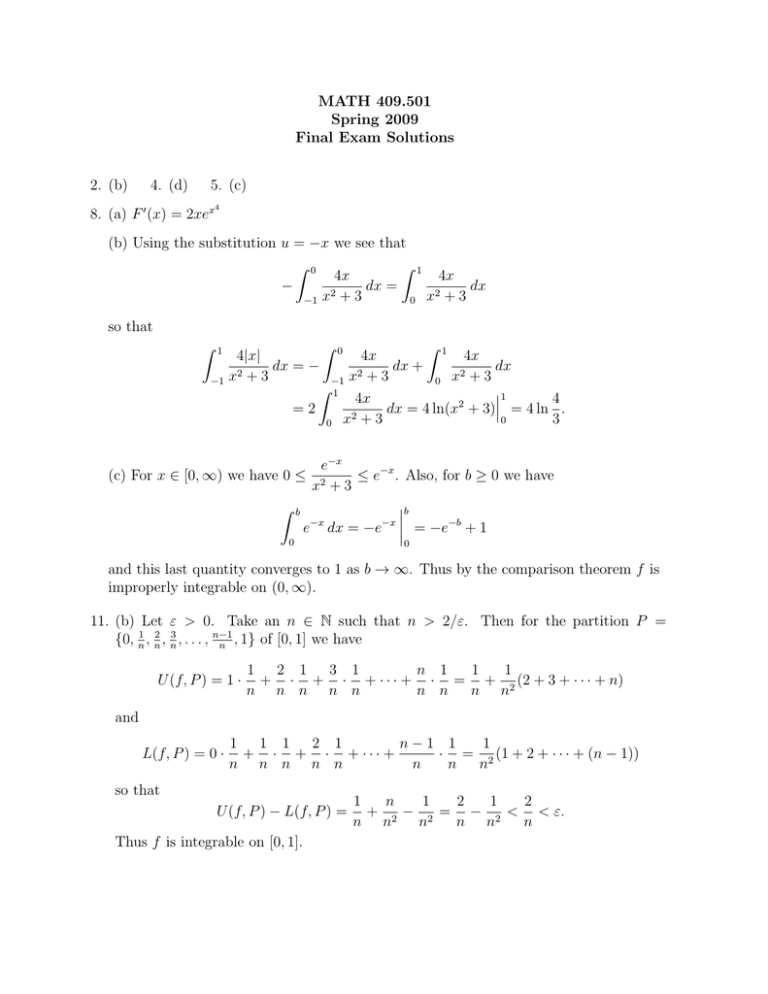
MATH 409.501
Spring 2009
Final Exam Solutions
2. (b)
4. (d)
5. (c)
8. (a) F 0 (x) = 2xex
4
(b) Using the substitution u = −x we see that
Z 0
Z 1
4x
4x
−
dx
=
dx
2
2
−1 x + 3
0 x +3
so that
Z
1
−1
Z 0
Z 1
4|x|
4x
4x
dx
=
−
dx
+
dx
2
2
x2 + 3
−1 x + 3
0 x +3
Z 1
1
4
4x
2
dx = 4 ln(x + 3) = 4 ln .
=2
2
3
0
0 x +3
e−x
≤ e−x . Also, for b ≥ 0 we have
x2 + 3
b
Z b
−x
−x e dx = −e = −e−b + 1
(c) For x ∈ [0, ∞) we have 0 ≤
0
0
and this last quantity converges to 1 as b → ∞. Thus by the comparison theorem f is
improperly integrable on (0, ∞).
11. (b) Let ε > 0. Take an n ∈ N such that n > 2/ε. Then for the partition P =
{0, n1 , n2 , n3 , . . . , n−1
, 1} of [0, 1] we have
n
U (f, P ) = 1 ·
1
2 1
3 1
n 1
1
1
+ · + · + · · · + · = + 2 (2 + 3 + · · · + n)
n n n n n
n n
n n
and
L(f, P ) = 0 ·
1
1 1
2 1
n−1 1
1
+ · + · + ··· +
· = 2 (1 + 2 + · · · + (n − 1))
n n n n n
n
n
n
so that
U (f, P ) − L(f, P ) =
Thus f is integrable on [0, 1].
1
n
1
2
1
2
+ 2 − 2 = − 2 < < ε.
n n
n
n n
n
